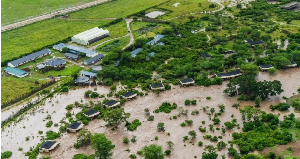Opinions of Tuesday, 5 May 2020
Columnist: Francis Ohemen Wusu
How the coronavirus pandemic has exposed the lapses in the Ghanaian educational system
As Malcolm X rightly puts it “Education is the passport to the future, for tomorrow belongs to those who prepare for it”. Good education opens up the mind, expands it and allows you to improve your life in diverse ways.
Education as we all know is the process of facilitating learning, or the acquisition of knowledge, skills, values, beliefs, and habits. In Ghana and Africa as a whole, education has transcended with time due to policy restructuring and reforms. Education in its entire embodiment has proved to be a life changer if done right and placed in the hands of well informed managers. I must put on record that I am mostly happy with the new educational reforms introduced by the Ministry of Education and its affiliate bodies.
Beginning with the introduction of the free secondary school education and new curriculum changes from kindergarten through to Senior High School level. The cut in the number of subjects sounds positive, reducing burden on students at the lower and upper levels. This country can always do better in the educational sector by building a culture of continuous reforms year in year out.
It will always be a relief for students to learn through play and activities than to go by the old system of rote learning and be assessed through same system. Our old system of education has actually labeled a good number of possible destiny changers in this country as purportedly dumb people, ignored and thrown onto our streets – as drop outs.
Before we get into the details of how virtual systems could improve learning, it’s essential to understand why we need to step up the quality of education in Ghana in the first place. Historically, most technologies designed to aid learning have been aimed at enabling access to information — facts and observations about the world. Before computers, we had a powerful tool that helped us retain facts: hard books. In the era of digital technologies, books are being turned into e-Books as well as e-libraries. Modern search engines such as Google and Ask.com make fact-finding really easy –with just a few clicks you can discover answers to many questions.
Formal education has come of age, and new systems are being implemented to meet the demands of the new generation and global trends. I have always held the conviction that Ghana has not made use of technological advancements to upgrade its education system. Every country which upholds education as a tool to obtain economic and personal development or freedom has now bought into the much touted virtual reality or online system of education.
In several schools where I have played a role as an educator, it has been my campaign to introduce schools to this easy system of accessing and imparting knowledge. Every school, whether public or private must be encouraged and supported to enroll onto virtual platforms. In this era, it is rather sad that we could still find school managers and principals going after educators using computers and smart gadgets to deliver lessons. We, as a nation, have come a long way to still be staying in the dark ages of operating brick and mortar-classrooms as the only option/system for ready learners.
What is Virtual education?
Virtual education is one where students attend classes online. Virtual education can be used to enhance student learning and engagement. It can transform the way educational content is delivered; it works on the premise of creating a virtual world (real or imagined) that allows students not to only see what is being delivered, but also interact with it. Deducing from its definition, most Ghanaians if introduced to this new system can then use any smart gadget at their disposal to access education online.
If our country wishes to educate its citizens totally both formally and informally, we should now open up and make free online tuition in all languages accessible – from the basic to the highest levels of education. Believing this Covid 19 pandemic as a necessary evil, the country must take advantage of all options available to us to upgrade our educational structures to the level where every citizen could access knowledge from the comfort of their homes.
For students who don’t fit in socially or those who have become the targets of bullies, those who are bored and in danger of dropping out, and those who have demanding extracurricular interests such as sports or arts as well as teenage girls who may get pregnant along the way, virtual classrooms can offer a customized education for them. Students can move at their own pace and control their own social interactions. They can take classes from anywhere, making it possible to compete in sports or pursue music, arts or any other endeavors of their interests.
All these talent areas must also be explored to the fullest to the benefit of the country – a clear benefit which the brick and mortar systems don’t offer.
Currently, most schools in Ghana have clinched on to Whatsapp and Google classroom as emergency learning sites to continue their syllabus due to the Covid 19 outbreak. Any serious country with dreams to succeed must not sit idle till emergency times before such strategies are put in place.
Education is the base for a thriving society, and the transfer of knowledge has always been a top priority since the very beginning of life. Countries are constantly looking for ways to make knowledge transfer easier, quicker, and more effective. In the era of digital devices, we have an opportunity to enable better learning with technology. Virtual Reality (VR) seems to be the natural next step for the evolution of education in Ghana.













